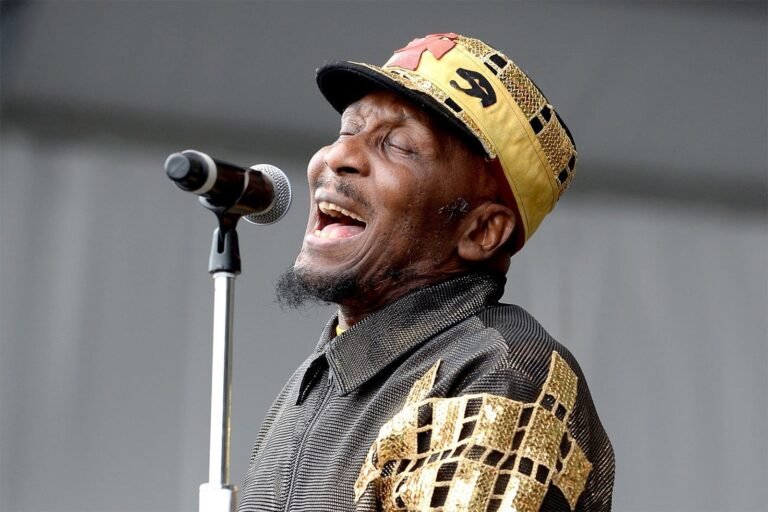Jamaican reggae icon Jimmy Cliff, one of the genre’s most influential pioneers who helped propel the infectious rhythms of his homeland to a worldwide audience, has passed away at the age of 81.
According to a BBC report, Cliff, born James Chambers in 1944 in the rural parish of St. James, Jamaica, died on Monday, November 24, 2025, following a seizure that led to complications from pneumonia, his wife Latifa Chambers announced via a heartfelt Instagram post.
The statement, also signed by their children Lilty and Aken, expressed profound sadness while thanking fans, family, and collaborators for their unwavering support throughout his illustrious career.
“It’s with profound sadness that I share that my husband, Jimmy Cliff, has crossed over due to a seizure followed by pneumonia,” Chambers wrote.
“To all his fans around the world, please know that your support was his strength throughout his whole career. Jimmy, my darling, may you rest in peace. I will follow your wishes.”
Growing up as the eighth of nine children in abject poverty, Cliff discovered his mellifluous voice early, singing in his local church from the age of six.
By 14, he had moved to Kingston, adopting the stage name “Cliff” to symbolise his ambitions for greatness. His breakthrough came with the self-penned single “Hurricane Hattie,” which topped Jamaican charts in the early 1960s.
In 1965, Cliff relocated to London to collaborate with Island Records—the label that would later catapult Bob Marley to fame. Initial efforts to blend his sound with rock influences yielded mixed results, but he soon achieved global success with the upbeat anthem “Wonderful World, Beautiful People” in 1969 and the poignant protest song “Vietnam,” hailed by Bob Dylan as “the best protest song ever written.”
Reflecting on his music in 1986, Cliff told reggae archivist Roger Steffens: “The essence of my music is struggle. What gives it the icing is the hope of love.”
Cliff’s star soared even higher with his starring role as the rebellious Ivan Martin in the 1972 crime drama “The Harder They Come,” a film that became a cornerstone of Jamaican cinema and a key vehicle for introducing reggae to international audiences, particularly in America.
The movie’s soundtrack, featuring Cliff’s hits like “You Can Get It If You Really Want,” “Many Rivers to Cross,” and the title track, was later ranked among Rolling Stone’s 500 greatest albums of all time. “The film opened the door for Jamaica,” Cliff later recalled. “It said, ‘This is where this music comes from.'”
Over a career spanning more than six decades, Cliff released over 30 albums, collaborated with the Rolling Stones on their 1986 album “Dirty Work,” and scored a surprise US chart hit in 1993 with his cover of “I Can See Clearly Now” from the soundtrack of “Cool Runnings,” the comedy about Jamaica’s bobsled team. His Grammy-winning works included “Cliff Hanger” (1985) for Best Reggae Recording and “Rebirth” (2012) for Best Reggae Album, the latter a nostalgic nod to his roots.
Inducted into the Rock and Roll Hall of Fame in 2010, Cliff was lauded by Fugees member Wyclef Jean, who credited him with inspiring a generation: “When we saw Jimmy Cliff, we saw ourselves.”
He continued performing into his later years, captivating crowds at Glastonbury’s legends slot in 2003 and Coachella in 2010. In October 2023, Jamaica honoured his contributions with the prestigious Order of Merit.
Tributes have flooded in from around the world, celebrating Cliff’s role in globalising reggae alongside contemporaries like Bob Marley.


